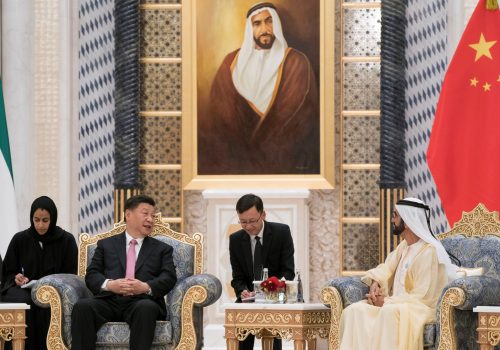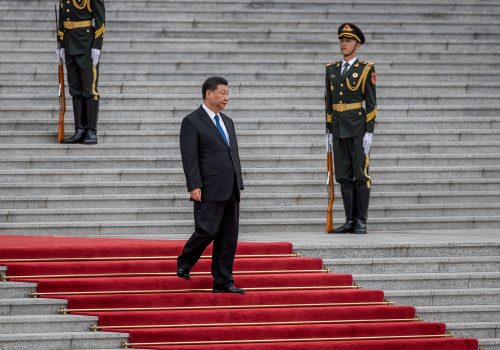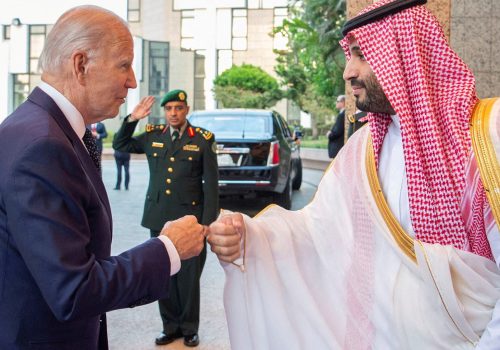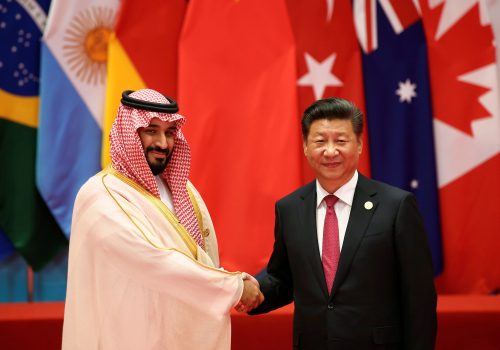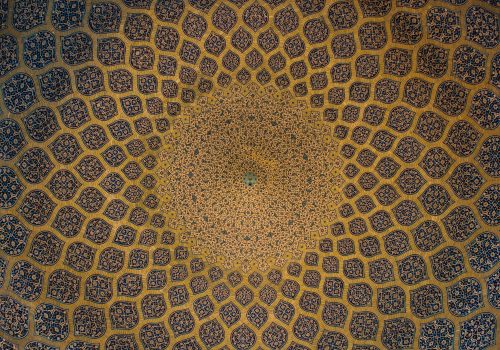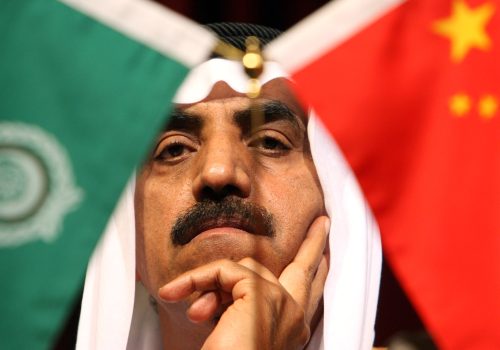China in MENA: An EU Perspective
SUBSCRIBE TO THE CHINA-MENA PODCAST ON THE APP OF YOUR CHOICE
Key takeaways
- How does the EU respond to the rising influence of China in the MENA region and the world?
- The areas where the EU and China can cooperate in the MENA region
- How does the EU position itself in the US-China geopolitical rivalry
- Why does China still have a strong influence in the region despite warnings given by Western countries?
Timestamps
[00:00] Introduction
[02:02] How does Europe see China both within Europe and globally
[09:28] The EU’s perspective on China’s rising presence in the MENA region
[22:27] China is a big player in providing development aid to the MENA region
[26:35] Nations that are challenging for the EU, and where China also has rising influence
[32:14] Areas where the EU and China can cooperate
[38:43] Why China is an attractive political partner to MENA countries
[43:10] How the EU is using US engagement in the region as their main narrative
In this episode
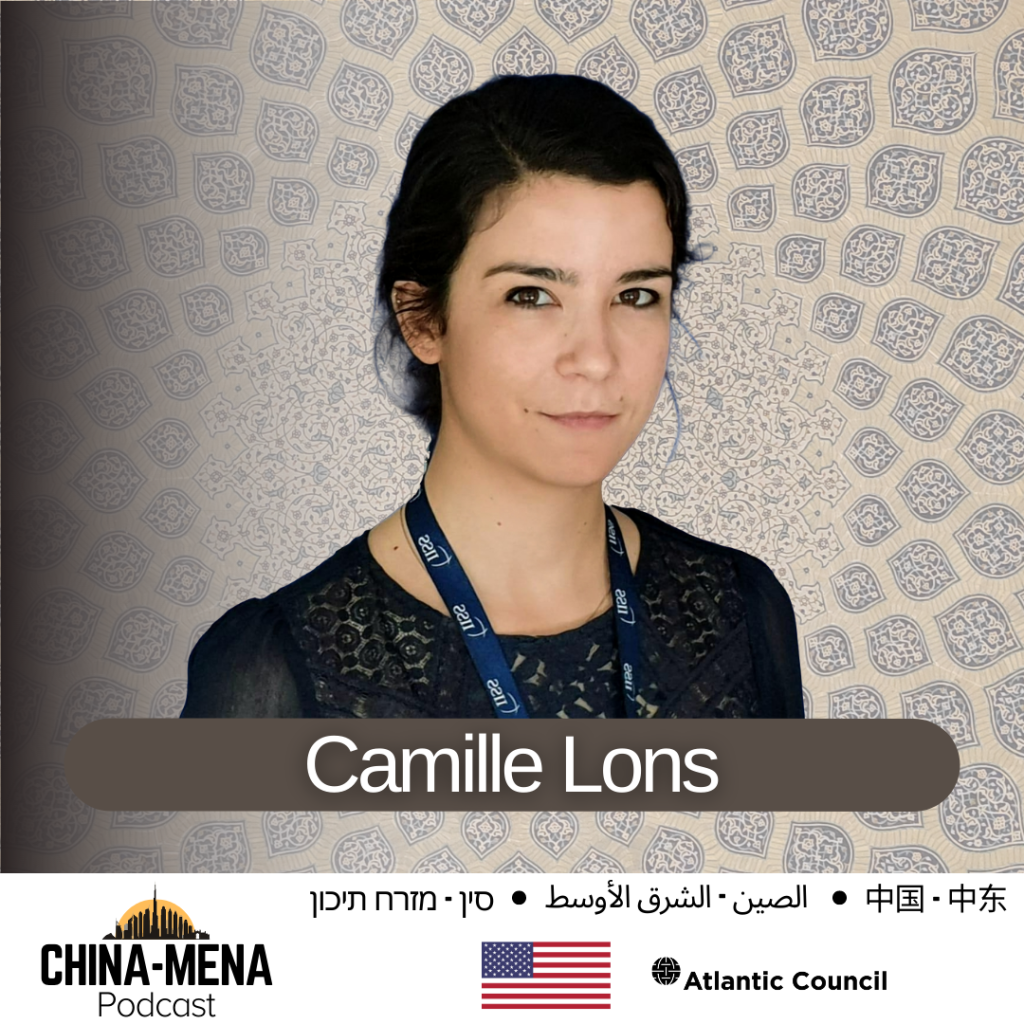
Camille Lons
Research Associate
International Institute for Strategic Studies – Middle East
Camille Lons is a Research Associate based in the Middle East office in Bahrain. She covers political and security developments in the Gulf region, with a specific focus on Gulf countries’ economic and political relations with Asian powers and the Horn of Africa. Her expertise focuses on the Geopolitics of the Gulf region, China’s role in the Middle East, and Geo-economic and security perspectives on Gulf–Horn of Africa relations.
Before joining the IISS, Camille worked for the European Council on Foreign Relations, where she coordinated the Middle East program and conducted research on relations between Europe and Gulf states. She also conducted field research for the NGOs Lebanon Support (Beirut) and Tamkeen Fields for Aid (Amman) on the spill-over effects of the Syrian crisis in neighboring countries.
Several nations with interests in the Middle East are now reevaluating their strategies in light of China’s rise as a key player in the region. Governments and businesses in the MENA region did not have to think much about China until recently, and the last ten years have seen a significant change in this area. And whether you are talking about commerce, investment, security, development, or diplomacy, the subject of what Beijing thinks is now constantly raised. This is complicated by China’s difficult interactions with numerous international events and forums, as well as world economies.
In this episode, we are joined by Camille Lons, a research associate at the International Institute for Strategic Studies (IISS) – Middle East, currently detached to Taipei, to discuss how Europeans see China as a rising global player in the geopolitics of the Middle East and North Africa and the world. Camille Lons and host Jonathan Fulton also discuss the EU’s response to the rising influence of China in MENA and the world; the areas where the EU and China can cooperate in the Middle East; how China’s growing presence in the region affects EU’s interests; the EU’s position in the US-China geopolitical competition, and China’s strong influence in MENA despite warnings and issues raised by Western allies, among other topics
Hosted by
“The EU is trying to position itself as a third party in the US-China rivalry. It means that other nations have the opportunity to choose the EU as a partner over the US and China.”
About the China-MENA podcast
The China-MENA podcast features conversations with academics, think-tankers, and regional specialists on Chinese Influence in the Middle East and informs US and MENA audiences in the policy and business communities about the nature of China’s outreach to the region.
At a time when China’s global footprint is getting deeper and deeper, it has never been more important to understand its foreign policy and the Middle East is one of the world’s most consequential regions: home to major religions, diverse cultural and social heritage, central to global energy markets, and of course, geopolitics, linking people and markets in Asia, Africa and Europe. This show will help you understand what China is doing in the region, and how the region is engaging with China as an increasingly important external power.
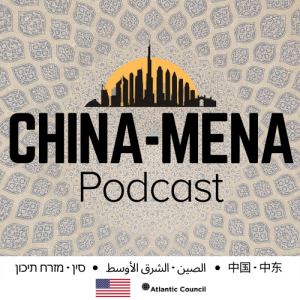
Podcast series
Listen to the latest episode of the China-MENA podcast, featuring conversations with academics, government leaders, and the policy community on China’s role in the Middle East.
Recommended reading
This podcast was funded in part by a grant from the United States Department of State. The opinions, findings, and conclusions stated herein are those of the author and do not necessarily reflect those of the United States Department of State.
Further reading
Wed, Aug 17, 2022
Managing US-China Competition: The View from Singapore
China-MENA Podcast By
Ambassador Bilahari Kausikan discusses the influence of the US-China Competition in the Southeast Asia region and much more!
Tue, Feb 15, 2022
Sino-Iranian relations
China-MENA Podcast By
Professor Anoushrivan Ehteshami joins the China-MENA podcast to discuss China-Iran relations and the state of the bilateral relationship.
Thu, May 19, 2022
Chinese Multilateralism in MENA
China-MENA Podcast By
Dawn Murphy joins us to discuss China's approach to drawing Middle East and North African countries into Chinese-led cooperative forums for political support and influence.
Image: European Union foreign policy chief Josep Borrell and European Council President Charles Michel arrive for talks with Chinese Premier Li Keqiang via video-conference during an EU-China summit at the European Council building in Brussels, Belgium April 1, 2022. Olivier Matthys/Pool via REUTERS








